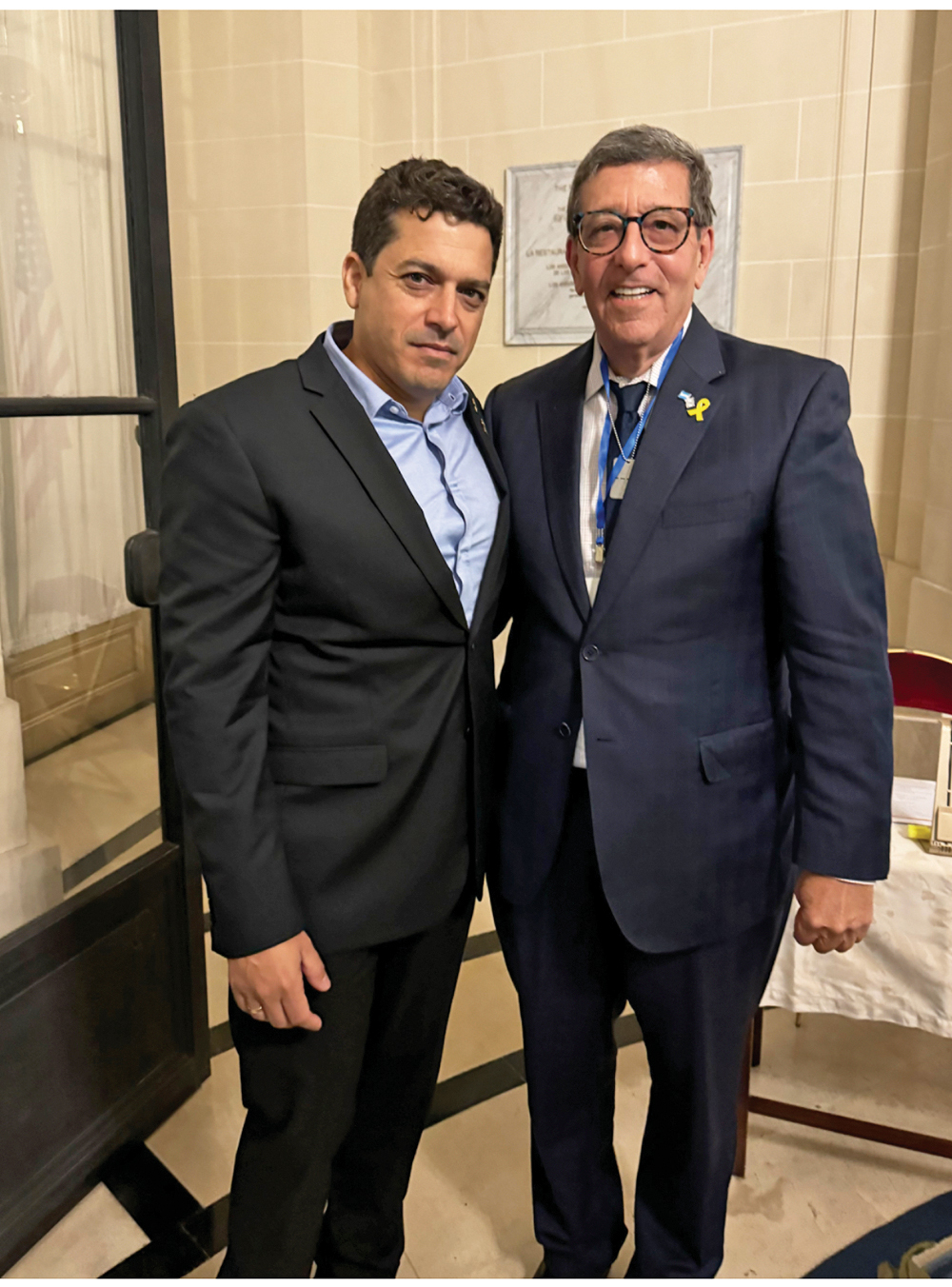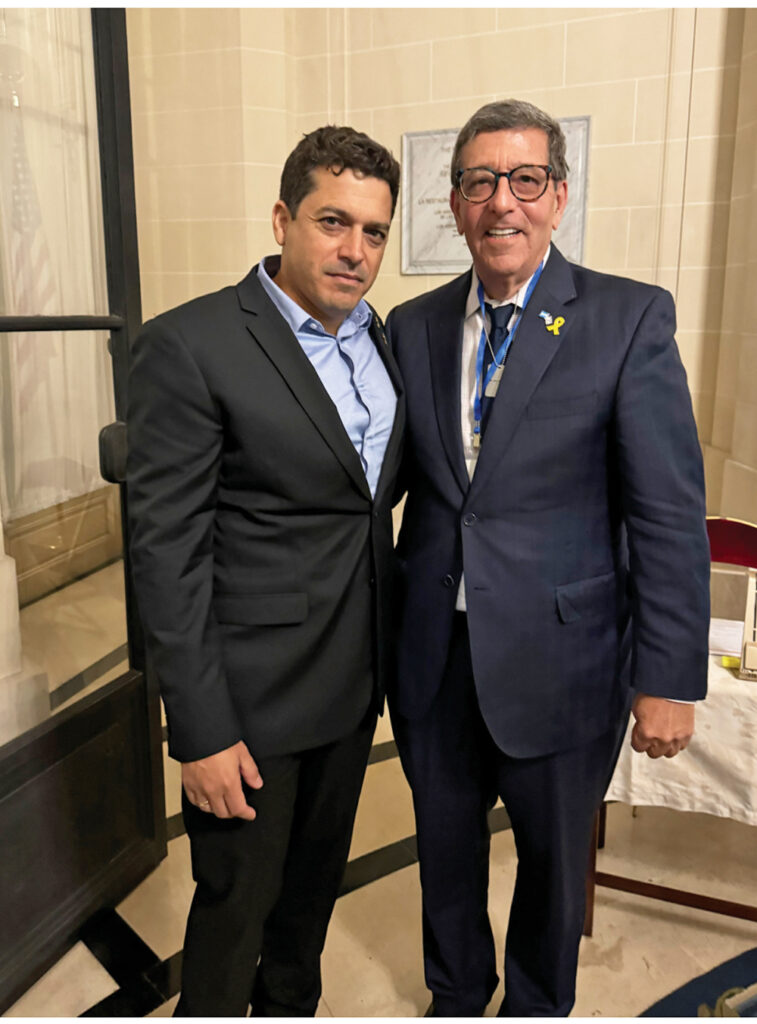
The suicide attack on the AMIA Jewish community center in Buenos Aires on July 18, 1994, which left 85 dead and hundreds injured, has stood out for decades as the most deadly attack on a Jewish community institution outside Israel in recent history. Two ceremonies earlier this summer enabled American Jewish communal leaders to take stock of both the inconclusive nature of the investigation of the attack and the many changes to the Jewish community in Argentina.
Mark Levenson of West Orange, chair of the real estate department of Sills Cummis Gross P.C., serves as a member of the 26-person Executive of the Jewish Agency for Israel. When he heard that the Jewish Agency was sending a delegation to Argentina to commemorate the 30th anniversary of the bombing, he knew that he had to participate.
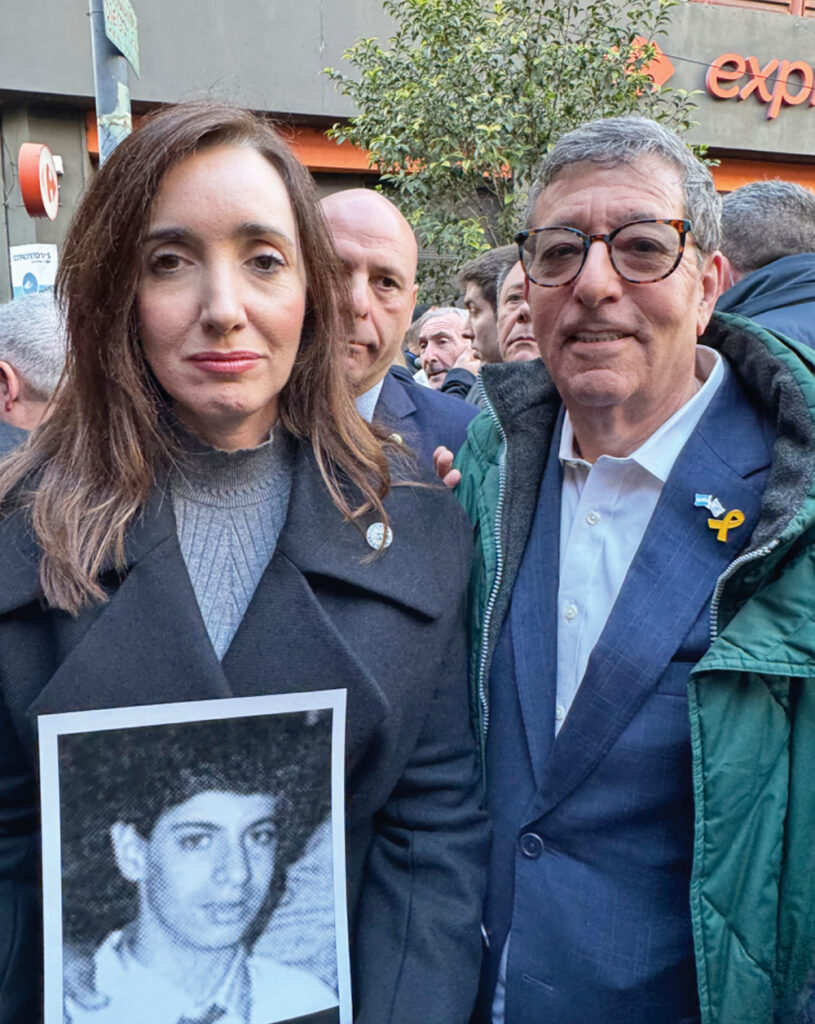
As Levenson explained to The Jewish Link: “I believe the anniversary was a momentous event,” which, along with the accompanying programs and events, underscores the size, strength and changes in the largest Jewish community in South America. He noted that the bombing of the AMIA building, and a prior bombing of the Israeli Embassy in Argentina in 1992, which took 29 lives—both believed to have been organized by Iran—are considered to have been the first attacks in a continuing series of deadly Islamist terror attacks worldwide over the ensuing decades. Levenson said that the attacks “shook the Jewish community to its core and also shook Argentinian society to the core.”
The Jewish Agency delegation was joined by delegations from the Anti-Defamation League, the American Jewish Committee, the Conference of Presidents of Major American Jewish Organizations, the World Jewish Congress and the United States Congress. The commemoration events were attended by U.S. Ambassador to Argentina Marc Stanley, Argentina’s President Javier Milei, Argentina’s Vice President Victoria Villarruel, United Kingdom Ambassador to Argentina Kirsty Hayes, Israeli Ambassador to Argentina Eyal Sela, and Israeli Minister of Diaspora Affairs Amichai Chikli.
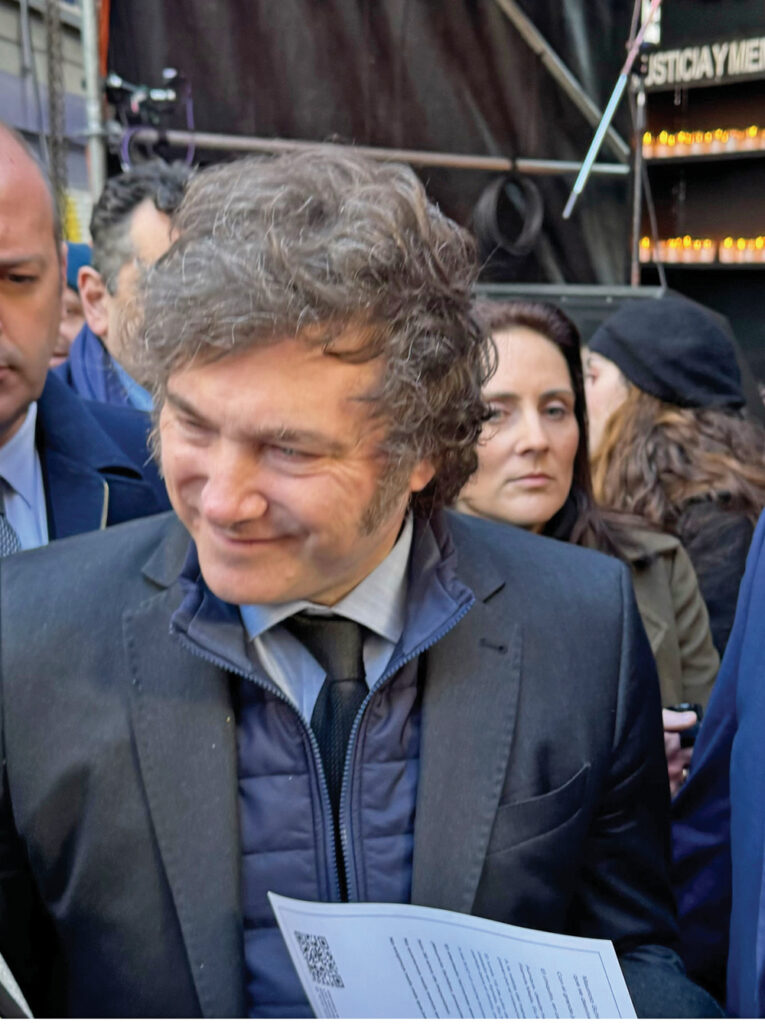
Levenson shared with The Jewish Link some of the changes in the Jewish community of Argentina that he noted in his trip:
- Milei, Argentina’s newly elected president, is perceived as very pro-Israel and made his first foreign trip as president to Israel. He has promised to move the Argentinian Embassy in Israel to Jerusalem.
- Milei and other federal leaders are well aware of the sense among local and international Jewish leaders that “justice delayed is justice denied” in the bombing investigation. He has promised to address decades of inaction and inconsistencies in the Argentinian justice system’s investigation of the AMIA attack.
- The Jewish Community in Argentina was believed, at its height, to be 300,000 people. Currently, the community is sized at 180,000. Aliyah has been a big factor in the decreasing size of the community.
- Approximately 50% of the children in the Jewish community attend Jewish day schools, and approximately 50% of the Jewish community is intermarried.
- There is very little public antisemitism in the country now. Levenson said that in his week-long visit, he wore his kippah in public and heard no comments about it, nor did he have any concerns for his safety in doing so.
The Jewish Agency delegation that Levenson participated in spent a few days visiting sites of Jewish interest in Argentina, which included tours of the Jewish neighborhoods and shuls, meetings with Hillel students and beneficiaries of different Jewish Agency programs, a half-day visit to the rebuilt AMIA building, and a trip to the location of the original Israeli Embassy.
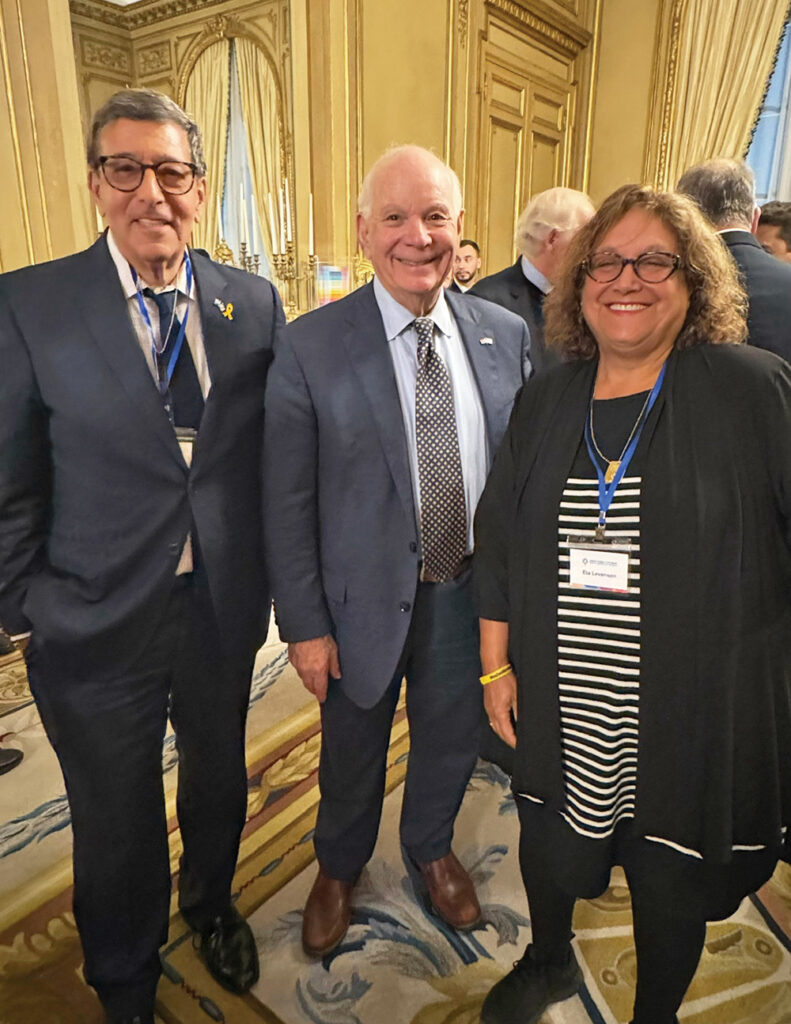
Asked about the continuing role of the international Jewish community in Argentina, Levenson stated that the primary role is through Jewish Agency programs, which support the Argentina Jewish community by security assistance, aliyah activities and educational resources. The international Jewish community also plays an important role in gently, politely, yet continuously pushing for justice in the investigation of the AMIA bombing.
Harry Glazer is the Middlesex County Editor of The Jewish Link. He can be reached at [email protected] and he welcomes reader feedback.


